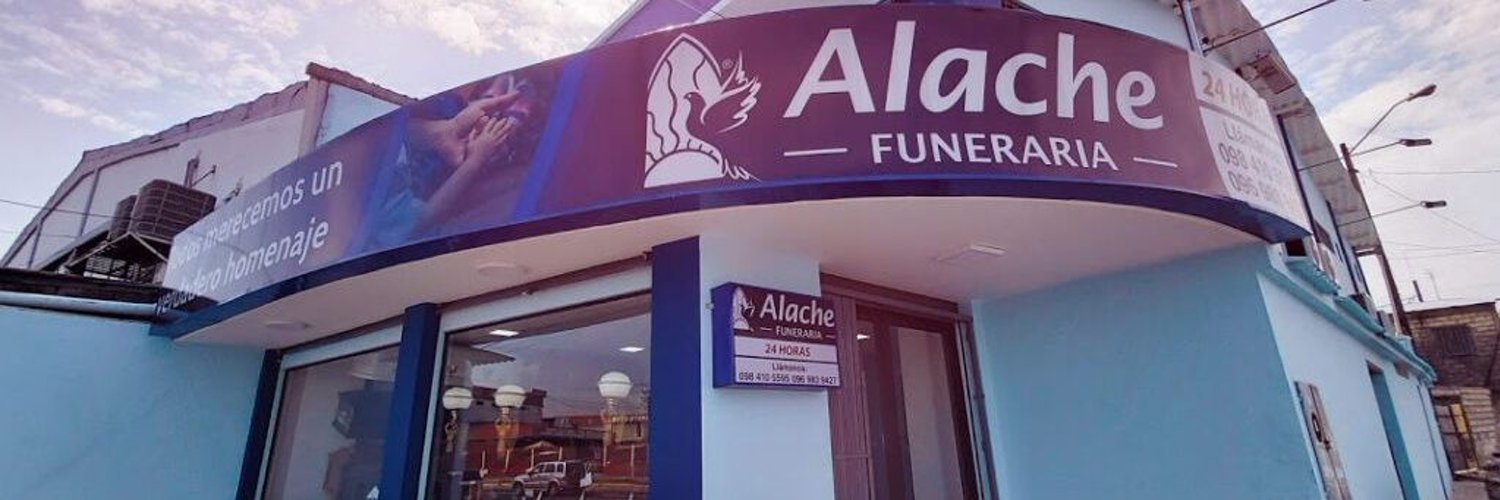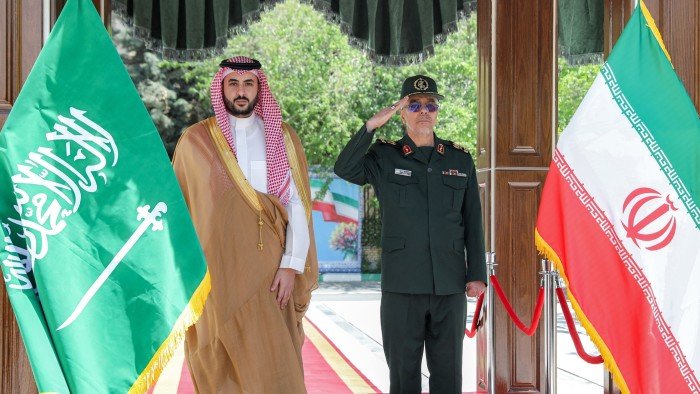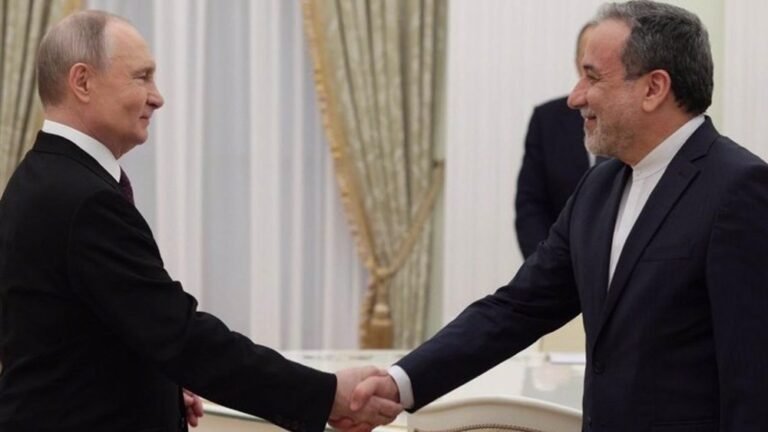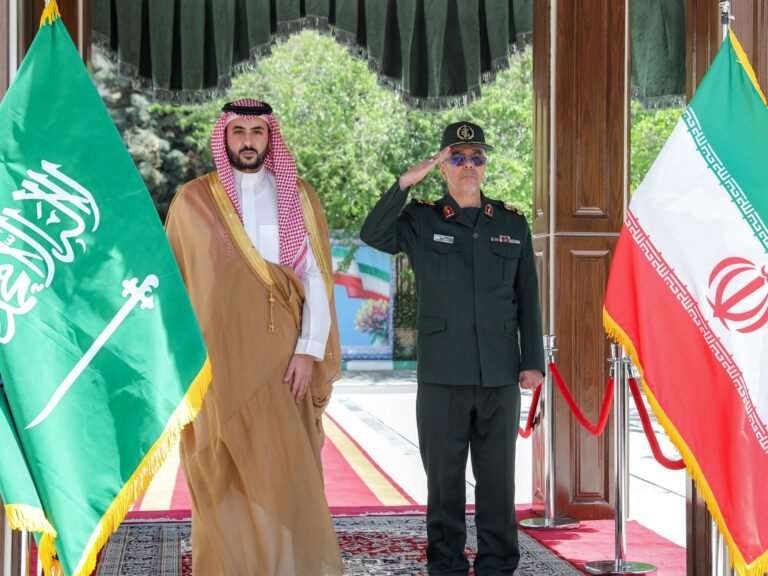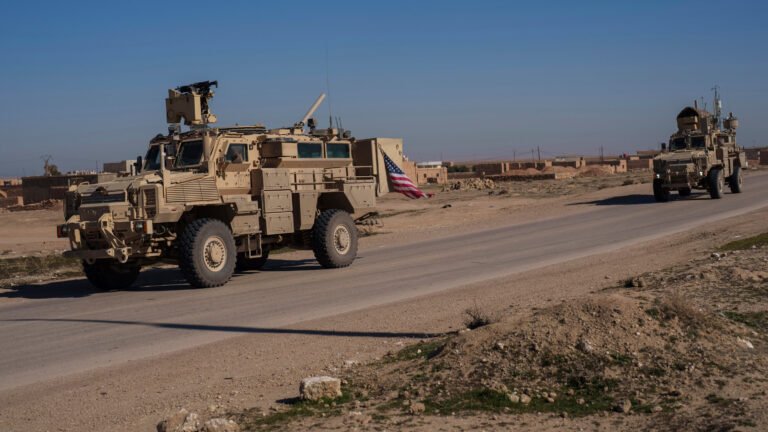Unlock the White House Watch newsletter for free
Your guide to what the 2024 US election means for Washington and the world
Saudi Arabia’s defence minister met with senior Iranian officials in Tehran on Thursday, days before Iran is due to hold a second round of talks with the US over the Islamic republic’s nuclear programme.
Prince Khalid bin Salman — a younger brother of Crown Prince Mohammed bin Salman, the kingdom’s de facto leader — is the highest level Saudi royal to visit Iran in decades. His trip comes amid fears among Arab states about the risk of renewed conflict in the region if diplomatic efforts fail to resolve the escalating stand-off between Iran and the US.
“Saudi is clearly sending a message to Tehran that it will not be a conduit in any fashion towards an attack on Iran,” said Ali Shihabi, a Saudi commentator close to the royal court. “The kingdom supports President [Donald] Trump’s efforts to find a diplomatic solution to the nuclear crisis, and doesn’t want a war.”
The Saudi state news agency said Prince Khalid would “discuss bilateral relations and issues of common interest”.
US envoy Steve Witkoff is due to hold talks with Iranian foreign minister Abbas Araghchi on Saturday as the Trump administration pressures Tehran to reach a deal that would severely curb its nuclear activity.
While insisting he wants an agreement to resolve the crisis, US President Donald Trump has repeatedly threatened Iran with military action if Tehran refuses to accept a deal. He has also deployed more American forces to the region — including a second aircraft carrier and US bombers.
Saudi Arabia is concerned about Iran’s nuclear ambitions and has long viewed Tehran as its main regional rival, accusing it of being a destabilising force in the region by backing militant groups. But Riyadh is also worried that if the US and Israel launch strikes against Iran, Tehran could retaliate by attacking its oil infrastructure, either directly or through proxies.
During Trump’s first term, Prince Mohammed was one of the staunchest backers of the US president’s decision seven years ago to withdraw from the 2015 nuclear accord Tehran signed with world powers and impose waves of sanctions on the republic as a part of a “maximum pressure” campaign.
But Saudi Arabia was rocked in 2019 when a sophisticated missile and drone attack, blamed on Iran, struck the heart of its oil infrastructure, temporarily knocking out half the kingdom’s crude output.
Riyadh then sought to de-escalate tensions with Tehran, culminating in March 2023 with the kingdom and the republic agreeing to restore diplomatic relations under a Chinese-brokered deal after a seven-year hiatus.
Prince Khalid’s delegation to Iran includes the Saudi ambassador to Yemen, where the kingdom has fought a long war against Iran-backed Houthi rebels. The kingdom has sought to extricate itself from that conflict, agreeing a fragile truce in 2022, but the peace process stalled after the Houthis launched attacks on shipping in the Red Sea.
Riyadh has avoided becoming directly involved in the US efforts to deter the Houthi attacks, which the Trump administration has escalated by launching waves of strikes against the rebels.
The Saudi leadership has sought to avoid stoking tensions with Tehran, particularly after Hamas’s October 7 attack in 2023 triggered a wave of regional hostilities that led to Israel and Iran launching missile strikes against each other.
Iran has actively sought to improve its relations with Saudi Arabia and the United Arab Emirates, another Gulf state that backed Trump’s to abandon the 2015 nuclear accord, as part of its efforts to counter US sanctions, and American and Israeli pressure.
Tehran and Washington described the first round of talks last Saturday as positive and constructive.
But this week Witkoff reiterated that the Islamic regime “must stop and eliminate” its nuclear enrichment programme to secure a deal, after he had earlier hinted that the Trump administration may be willing to allow Tehran to continue some low-level enrichment.
Iranians officials insist that giving up its enrichment programme would be a red line for the republic.
